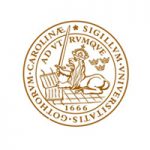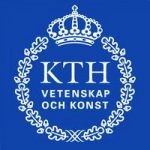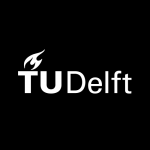项目介绍
Lund University was founded in 1666 and is repeatedly ranked among the world’s top universities. The University has around 47 000 students and more than 8 800 staff based in Lund, Helsingborg and Malmö. We are united in our efforts to understand, explain and improve our world and the human condition.
Lund University welcomes applicants with diverse backgrounds and experiences. We regard gender equality and diversity as a strength and an asset.
Description of the workplace
The Department of Electrical and Information Technology at Lund University, The Faculty of Engineering, LTH, is one of the larger departments with about 120 employees and conducts research and teaching mainly in Electrical Engineering and Computer Technology. We are located on LTH’s campus in northern Lund.
The Division for Electromagnetics and Nanoelectronics has 10 senior researchers and 15 doctoral students and has extensive collaboration with industry. Within the department we work in a broad field ranging from semiconductor components, nanotechnology, electronics, and electromagnetic computations.
We are looking for one or two doctoral students with focus as listed below.
Project description
The basis for the research and teaching activities in electromagnetics is the fundamental macroscopic electromagnetic laws (Maxwell’s equations) as they apply to the generation and propagation of electromagnetic fields. Special emphasis is also given to the theoretical study of the various devices that can be constructed to amplify and regulate these phenomena. In our ambition to meet these goals all methods analytic, numerical, and measurements are relevant to us.
Two possible research directions are described below. The final choice of project and supervisor will be made jointly by the candidate and the department.
Research direction 1
Large array antennas play a crucial role in communication, radar, imaging, and measurement systems. This project focuses on developing advanced theoretical frameworks, algorithms, and methodologies for analysing, designing, and characterizing large array antennas. Key research areas include fundamental performance limits, modal expansions, degrees of freedom, inverse design techniques, and the integration of learning-based approaches to optimize antenna performance.
For more information, https://ant.eecs.kth.se/SEE-6GIA/ (SEE-6GIA)
Contact person: Mats Gustafsson
Research direction 2
This project develops a distributed radar system suitable for deployment on a drone swarm, and derive suitable algorithms to leverage the added value of being able to freely choose the positions of the antenna nodes. One low-frequency and one high-frequency system have been identified, both of which can be implemented using commercial-off-the-shelf products. The combination of the two systems provides detection, positioning, tracking, and imaging at both long and short range in situations with low visibility, enabling search-and-rescue missions in disaster areas and further applications.
For more information, https://elliit.se/project/cooperative-coordinated-coherent-drone-distributed-radar/ (drone-distributed-radar)
Contact person: Daniel Sjöberg
Work duties
The main duties of doctoral students are to devote themselves to their research studies which includes participating in research projects and third cycle courses. The work duties will also include teaching and other departmental duties (no more than 20%).
The work duties include analysis and further development of existing solutions, use of electromagnetic field theory to identify new solutions, and verification through numerical simulations and experimental verification of prototypes.
Admission requirements
A person meets the general admission requirements for third-cycle courses and study programmes if the applicant:
- has been awarded a second-cycle qualification, or
- has satisfied the requirements for courses comprising at least 240 credits of which at least 60 credits were awarded in the second cycle, or
- has acquired substantially equivalent knowledge in some other way in Sweden or abroad.
A person meets the specific admission requirements for third cycle studies in Electrical Engineering if the applicant has:
- at least 60 second-cycle credits in subjects of relevance to Electrical Engineering, or
- a MSc in Engineering in Biomedical Engineering, Computer Science, Electrical Engineering, Engineering Mathematics, Nano Engineering, Engineering Physics, or Information and Communication Engineering.
Additional requirements:
- Very good oral and written proficiency in English.
- Very good knowledge of one or several subjects in electromagnetics, mathematics or classical physics.
Assessment criteria
Selection for third-cycle studies is based on the student’s potential to profit from such studies. The assessment of potential is made primarily on the basis of academic results from the first and second cycle. Special attention is paid to the following:
- Knowledge and skills relevant to the thesis project and the subject of study.
- An assessment of ability to work independently and to formulate and tackle research problems.
- Written and oral communication skills.
- Other experience relevant to the third-cycle studies, e.g. professional experience.
Other assessment criteria:
- Experience in electromagnetic design problems.
- Experience in numerical simulation and optimization.
- Experience in implementation and measurements of antenna systems
Consideration will also be given to good collaborative skills, drive and independence, and how the applicant, through experience and skills, is deemed to have the abilities necessary for successfully completing the third cycle programme.
We offer
Lund University is a public authority which means that employees get particular benefits, generous annual leave and an advantageous occupational pension scheme.
Read more on the University website about being a Lund University employee Work at Lund University.
Terms of employment
Only those admitted to third cycle studies may be appointed to a doctoral studentship. Third cycle studies at LTH consist of full-time studies for 4 years. A doctoral studentship is a fixed-term employment of a maximum of 5 years (including 20% departmental duties). Doctoral studentships are regulated in the Higher Education Ordinance (1993:100), chapter 5, 1-7 §§.
We intend to employ 1-2 doctoral students.
The start date is as soon as possible according to agreement, however no later than December 1, 2025.
How to apply
Applications shall be written in English and include a cover letter stating the reasons why you are interested in the position and in what way the research project corresponds to your interests and educational background. The application must also contain a CV, degree certificate or equivalent, and other documents you wish to be considered (grade transcripts, contact information for your references, letters of recommendation, etc.).
Welcome to apply!
联系方式
电话: +46 (0)46 222 0000相关项目推荐
KD博士实时收录全球顶尖院校的博士项目,总有一个项目等着你!





